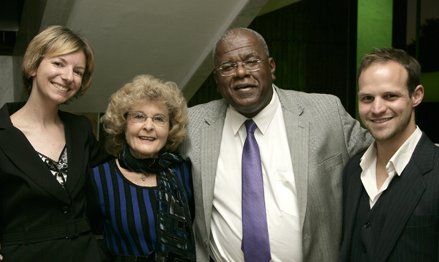Latest News Archive
Please select Category, Year, and then Month to display items
09 December 2020
|
Story Carli Kleynhans
|
Photo Supplied
 Carli Kleynhans.
Carli Kleynhans.
With the most gruelling year recorded in our entire lives, gradually coming to an end we remain hopeful and thankful that we have made it through. From the unexpected shock of going into lockdown, to the worry of having to use a blended approach to succeed in your academics and now finally settling into a new normal, we at the advising office bestow upon you the title of Kovsie champion…because that's exactly what you are!
One of our many champions, Carli Kleynhans, a 3rd (final) year student enrolled for BA Psychology and English shares how she survived…no, actually how she has thrived in 2020.
• What was your biggest concern about your academics when you found out the country was going into lockdown?
My biggest concern about my academics as a final year student was whether the online learning and tests would provide the same in depth learning experiences that are necessary to build upon for future studies.
• What are some of the challenges you've experienced along the way?
Staying focused and trying not to procrastinate was a big challenge I had to conquer, especially trying to not be distracted by my family and my phone. How I survived and was able to thrive in 2020!
• What are some of the strategies you've used to ensure your academics don’t suffer?
Time management was one of the most important strategies that I applied. For most of my classes, I was able to focus each week on a different module, by working and studying in advance I was able to keep up with my workload and still have the weekends to focus on myself, therefore creating designated time to work, study and also time to relax and read.
• What support have you received from the institution that's helped you thus far?
Most of my lecturers have provided needed support regarding our academics. The institution helped provide clarity with everything that was going on.
• What do you think the UFS could have done differently to support student success?
I think the UFS could have provided more resources for the final year students, especially considering we have to apply for further studies; online it was difficult to discern exactly what was necessary for the applications, whereas in class I feel more information would have been provided.
• What has kept you motivated?
Knowing it is my final year has helped to motivate me, as I have to use these grades to apply for further studies. I recently received recognition from Golden Key and this helped to further inspire me to work even harder at my academics.
• What advice do you have for your fellow Kovsies who are finding it difficult to keep going?
Remember to make time for yourself, to look after yourself and your mental health, especially in these difficult times. Work in advance and keep to your personal academic calendar.
'England, the English and the problem of education in South Africa.’
2013-09-26
|
 |
Attending the lecture were, from the left: Dr Susan Brokensha, Senior Lecturer: Department of English; Prof Rosemary Gray, Professor Emeritus (Honorary Life Vice-President of the English Academy of Southern Africa); Prof Jonathan Jansen; and Dr Thinus Conradie, Lecturer: Department of English.
Photo: Johan Roux
26 September 2013 |
Prof Jonathan Jansen: Lecture
The university celebrated the life of one of South Africa's most renowned art critics, hosting the 2013 English Academy’s Percy Baneshik Memorial Lecture on the Bloemfontein Campus.
The keynote lecture was delivered by Prof Jonathan Jansen, Vice-Chancellor and Rector, who joined a distinguished list of speakers to have delivered the lecture. Presented annually by the English Academy of Southern Africa, an association dedicated to promoting the effective use of English as a dynamic language in Southern Africa, past speakers include Prof Es’kia Mphahlele, Prof Njabulo Ndebele, Dr Alan Paton and Prof Albie Sachs. The lecture is hosted at venues across the country and this year Bloemfontein paid tribute to Percy Baneshik.
In his speech Not even colonial born: England, the English and the problem of education in South Africa,' Prof Jansen addressed the dilemma of the politics of language in both school and university education today.
Talking about the dominance of English in schools, Prof Jansen said it is the language of choice because indigenous languages are so poorly taught. "Simply learning in your mother tongue is absolutely no guarantee of improved learning gains in school. The problem is not the language of instruction; it is the quality of teaching, the knowledge of curriculum and the stability of the school."
Prof Jansen told the audience in the CR Swart Hall that Afrikaans-exclusive, or even Afrikaans-dominant white schools represent a serious threat to race relations in South Africa. "You simply cannot prepare young people for dealing with the scars of our violent past without creating optimal opportunities in the educational environment for living and learning together."